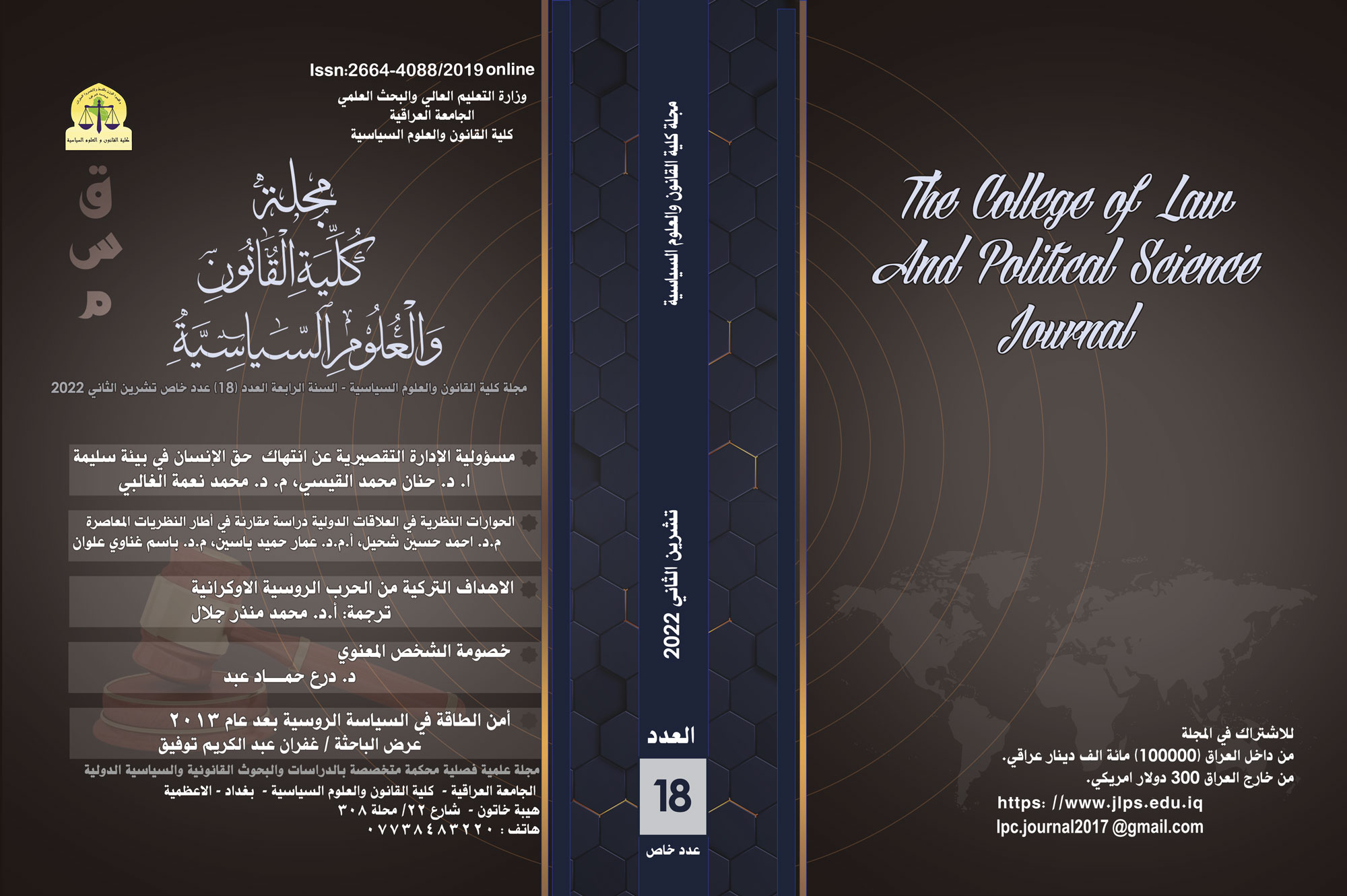الحوارات النظرية في العلاقات الدولية – دراسة نظرية في اطار النظريات المعاصرة
DOI:
https://doi.org/10.61279/a1rnew98الكلمات المفتاحية:
العلاقات الدولية ، العلوم الاجتماعية ، الليبرالية، القرن العشرينالملخص
تشكل الحوارات النظرية في العلاقات الدولية مدخلا مهما لمعرفة أبعاد التحولات المعرفية التي طرأت على واقع تفسير جميع التفاعلات السياسية الدولية من جانب، ومن جانب أخر بلورة اطر مفاهيمية ونظرية لدراسات نقدية في أطار النظريات المعاصرة، إي هل يمكن لنظرية واحدة من النظريات المطروحة في مجال العلاقات الدولية أن تفسر طبيعة التفاعلات الدولية في ظل خصوصية البيئة الإستراتيجية وتعقيداتها، ام هل يمكن ان تتخصص كل نظرية في مجال محدد بذاته، وهذا يقودنا إلى القول هل إن العلاقات الدولية علم له نظرية ومفهوم ومنهج محدد أم لا؟ أم إن هناك تحولات معرفية سوف تسهم في بروز نظريات جديدة تنعكس إيجابا على تفسير انساق تفاعلات العلاقات الدولية، لاسيما إذا أدركنا إن العلاقات الدولية تعد علم جديد له نظريات ومفاهيم ومناهج مختلفة، لذلك فان فهم عملية التحول والتغيير في دراسة مجال العلاقات الدولية بالاستناد الى حقائق التغيير في واقع العلاقات الدولية من جهة وتغير في مناهج المعرفة وفلسفتها النظرية- النقدية من جهة أخرى سوف تشكل مداخل مهمة في تطور دراسة مجال العلاقات الدولية في ضوء التطورات والتحولات في نظرية المعرفة ومنهج النظرية وأهدافها الأساسية.
التنزيلات
التنزيلات
منشور
إصدار
القسم
الفئات
الرخصة
الحقوق الفكرية (c) 2023 مجلة كلية القانون والعلوم السياسية

هذا العمل مرخص بموجب Creative Commons Attribution-NonCommercial-NoDerivatives 4.0 International License.





